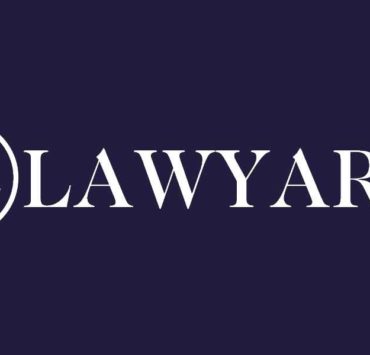Legal Implications of Abuse of Currency Notes in Nigeria
The mass media was awash with the video posted on Sahara Reporters on 14th September 2020 of a man burning a 1000 thousand Naira. There has been agitation from some quarters that the man should be prosecuted and charged for treason, disrespect for our national identity, and other offences.
According to Wikipedia, Money burning or burning money is the purposeful act of destroying money. Money is usually burned to communicate a message, either for artistic effect, as a form of protest, or as a signal. Publicly burning money can be an act of protest or a kind of artistic statement.
Often the point is to emphasize money’s intrinsic worthlessness. In 1984, Serge Gainsbourg burned a 500 French franc note on television to protest against heavy taxation. In 2010, the spokesperson for the Swedish Feminist Initiative, Gudrun Schyman, burned SEK 100,000 during a speech about the inequality in wages for men and women.
For the purposes of macroeconomics, burning money is equivalent to removing the money from circulation, and locking it away forever. In Nigeria, only the Central Bank is permitted by law to burn or destroy currency notes. Section 18(d) of the CBN Act 2007 authorized “The Bank to arrange for the destruction of currency notes and coins withdrawn from circulation under the provision of section 20(3) of the said Act or otherwise found by the Bank to be unfit for use.”
On the 10th of February, 2020, the apex bank disclosed that although it destroys about 100 tonnes of bad naira notes weekly through open-air burning at the 12 disposal centers stationed across the country, it will review this practice because of the negative effects of open-air burning on the environment.
The CBN said mutilated and withdrawn banknotes in Nigeria will be destroyed under strict security and environmentally sustainable manners. The bank said it has, however, reviewed the current method of banknote wastes disposal through open-air burning with the aim of adopting a more environmentally sustainable method thereby reducing its carbon footprint.
Offences Against Currency Notes
The unit of currency in Nigeria shall be the naira which shall be divided into one hundred kobo. The central bank is responsible for the issuance of naira and kobo.
In order to stem the abuse that the Naira is constantly subjected to, increase the active life of Naira notes and coins and promote confidence in their usage as a medium of exchange, certain actions of the use of currency notes have been criminalized and appropriate sanctions imposed. The criminalization and imposition of sanctions for abuse of currency notes is an offence in many countries like Australia, Singapore, Malaysia, United Kingdom, Nigeria, etc.
Section 16 of the Crimes (Currency) Act 1981 prohibits deliberate damage and destruction of Australian money without a relevant legal permit. The law covers both current Australian money and historical coins and notes.
Breaking this law can lead to detention or a fine. According to this law, even writing words on a banknote can be punished. Singapore’s Currency Act states that any person who mutilates, destroys, defaces, or causes any change (to diminish value/utility of) currency note or coin is fined up to $2,000.
Section 20 and 21 of the Nigeria CBN Act, 2007 criminalized certain actions against currency notes and imposed punishment for them. They include:
- Counterfeiting: The Central Bank in its Clean Note Policy defined a counterfeit currency as an imitation of currency produced without the legal sanction of the state or government.
Producing or spending of counterfeit currency is a form of fraud or forgery. It is against the law for any individual or establishment outside the central bank of Nigeria, to print money or be in possession of counterfeit money.
Section 20 (4) CBN Act 2007 provides that it shall be an offence punishable by a term of imprisonment of not less than 5 years for any person to falsify, make or counterfeit any bank note or coin issued by the bank which is legal tender in Nigeria.
- Rejection of Naira: A person who refuses to accept the naira as a means of payment is guilty of an offence and liable on conviction to a fine of #50, 000 or 6 months imprisonment: Provided that the bank shall have powers to prescribe the circumstances and conditions under which other currencies may be used as medium of exchange in Nigeria.
- Mutilation: A person who tampers with a coin or note issued by the bank is guilty of an offence and shall on conviction be liable to imprisonment for a term not less than six months or to a fine, not less than #50, 000 or both such fine and imprisonment.
A coin or note shall be deemed to have been tampered with if the coin or note has been impaired, diminished, or lightened otherwise than by fair wear and tear or has been defaced by stumping, engraving, mutilating, piercing, stapling, writing, tearing, soiling, squeezing or any other form of deliberate and wilful abuse whether the coin or note has or has not been thereby diminished or lightened.
The central bank Clean Notes Policy provides that a currency banknote shall be considered mutilated when it is partially or permanently damaged by fire, flood, soaked, dyed, torn, or destroyed by insects and other natural disasters and is more than one half of the size of the original note. It may or may not require special examination to determine its value.
- Spraying: For the avoidance of doubt, spraying of, dancing or matching on the naira or any note issued by the bank during social occasions or otherwise howsoever shall constitute an abuse and defacing of the naira or such note and the person shall be liable upon conviction to imprisonment for a term not less than six months or to a fine not less than #50, 000 or both such fine and imprisonment.
Spraying includes adorning, decorating or spraying anything or any person or any part of any person or the person of another with naira notes or coins or sprinkling or sticking of the naira notes or coins in a similar manner regardless of the amount, occasion or the intent.
- Stepping on: It is against the law to step on the currency notes. Marching includes spreading, scattering or littering of any surface with any naira notes or coins and stepping thereon, regardless of the value, volume, occasion or intent.
It amounts to an act of defacing of the naira and the person shall be liable upon conviction to imprisonment for a term not less than six months or to a fine not less than #50, 000 or both such fine and imprisonment.
- Sale: It shall also be an offence for any person to hawk, sell or otherwise trade in the naira notes, coins or any other note issued by the bank. The person upon conviction shall be liable to imprisonment for a term not less than six months or to a fine not less than #50, 000 or both such fine and imprisonment.
- Burning: It is against the law to burn Nigeria currency notes. A person who tampers with a coin or note issued by the bank is guilty of an offence. A coin or note shall be deemed to have been tampered with if the coin or note has been impaired… or any other form of deliberate and wilful abuse.
It is pertinent to state that there was no express mention of burning of currency notes as an offence however from the clear wordings of this above section, it can be said that the act of burning currency note is a form of deliberate and wilful abuse. Therefore, the man caught on the video tape burning our currency note has violated the provisions of section 21 and upon conviction; he shall be liable to imprisonment for a term not less than six months or to a fine not less than #50, 000 or both such fine and imprisonment.
Prosecution of Offenders
A combined reading of Section 31, 32 (2) and 66 (1) of Police Act, 2020, the police are empowered to investigate, arrest and prosecute offenders of our laws. Notwithstanding the powers of the Police Officers who are lawyers to prosecute offenders, the Attorney General of the Federation, those in his ministry and the Central Bank are also empowered to prosecute offenders of the CBN Act.
The Federal High Court shall exercise jurisdiction to try offenders of this Act. Section 251 (3) provides: “The Federal High Court shall also have and exercise jurisdiction and powers in respect of criminal causes and matters in respect of which jurisdiction is conferred by subsection (1) of this section.’’ The rationale behind the federal high court exercising jurisdiction is because the subject matter of the offences bothers on legal tender.
Conclusion
The Nigerian currency notes is one of our national identity, any form of defacement of the currency is a form of ridicule on the nation. It erodes the sense of pride and confidence that Nigerians should feel in their country. It is very important that the Central Bank should carry out public sensitization on proper handling and security features of the Naira banknotes. They should promote and maintain public confidence in our currency. Reinforce the campaign on the abuse/counterfeiting of the Naira as a criminal offence. The law is not law if not enforced. So, I submit that the Police should investigate and prosecute the man caught on tape burning our currency note and this will deter others from engaging in such act.
This article was written by Chidera Nwokeke and can be reached at Nwokekechidera@gmail.com












